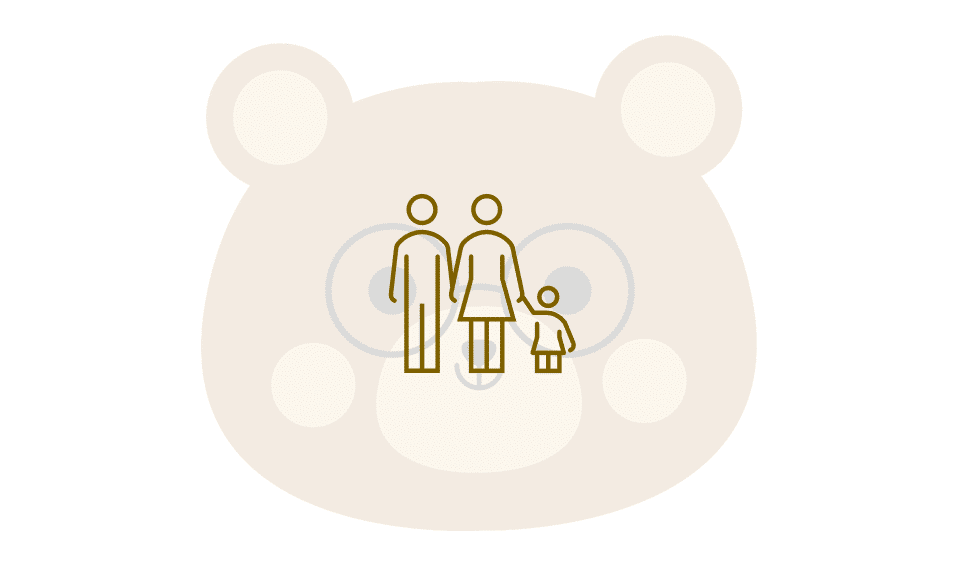
Learn Russian Online: Guide & Online Course Overview
April 15, 2024
Learn Programming Online: Guide & Online Course Overview
April 19, 2024Can a baby learn to sleep? It’s not just you asking yourself this question, but according to a study, one in five mothers whose child can’t get a good night’s rest. A good night’s sleep is not only important for the little ones – parents should also get enough rest at night to start the day fresh and with enough energy the next morning. And yet it is quite normal that a newborn baby’s biorhythm has to adjust first. Just like talking and walking, a baby has to learn to sleep first. But what if a cozy nursery, breastfeeding or a bottle before bedtime and a loving hug are not enough? Including the Baby sleep online course can provide additional strategies and insights to help both babies and parents establish healthy sleep routines.
|
No courses listed yet.
|
How much sleep does my baby need?
First of all, you should know that children have completely different sleep requirements to adults.An infant sleeps between 16 and 19 hours, but usually only 4 hours at a time, followed by an equally long waking phase.Your baby will only learn to sleep over time and its rhythm will adapt to your sleep rhythm.Some babies start sleeping through the night for the first time from around 12 o’clock at night until 6 o’clock in the morning from the age of 3 months.The child needs further short naps during the day to process everything it experiences during the day.
However, it becomes problematic if these longer intervals are cut out completely and your baby can’t get any rest. Because without going back to feeding by the clock or letting your child cry – a baby also needs a fixed rhythm. And even if this develops individually, you can help your baby to go to sleep. It is important to approach this with love and security, not to make comparisons with other parents and to be attentive to your child. If you are there to help your little one, the whole family can relax and avoid a vicious circle of irregular waking, drinking and sleeping phases as well as irritability and restlessness.
There can be many reasons why your baby can’t rest at night. In addition to the fact that a baby has to learn to sleep, teething, an exciting experience during the day, anxiety or illness can also lead to restless nights.You should therefore first make sure that your baby is completely healthy and, if necessary, talk to your pediatrician about your little one’s sleep problems.
Tip #1: Regular mealtimes and breastfeeding breaks help your baby learn to sleep
Babies sleep better when they are full and satisfied. If you want your baby to learn to sleep, it is therefore a good idea not to put him to bed hungry. Nevertheless, it is good if you do not breastfeed your baby too often, but leave breaks of at least 2 hours between feeds.
As sucking has a calming effect, your little one may want to drink more often. However, this is usually not due to hunger, but to a longing for physical closeness, which you can also give him by cuddling, a pacifier or tea. You should therefore also be careful about using breastfeeding as a bedtime ritual to get your baby to sleep. Once your baby has got used to it, it can be difficult to get away from it again. Especially in the first few months, your baby’s sleep rhythm is determined by hunger, so he or she will also wake up at night.
To make it as easy as possible for your little one to fall asleep after a night-time meal, make sure you turn on as little light as possible and don’t make any exciting movements or noises. You will both soon find your individual rhythm so that your baby can learn to sleep.
Tip #2: A daily routine helps
Do you also like to take your baby to the café or yoga class in a baby carriage or sling? It is of course very practical if you can have your child with you during various activities, as most babies simply fall asleep as soon as they are tired anyway. However, so much excitement and irregular routines can also make it more difficult for your baby to learn to sleep. This is because it hardly has a chance to get used to regular bedtimes in its own crib.
The same also applies to sleeping in mom’s arms – even though babies need as much closeness as possible to train their cognition through physical contact, it is also good for your baby and their developing sleep routine to spend time in their own bed. It’s best to put your baby to bed shortly before you put him to sleep so that he doesn’t wake up again later and can fully enjoy the necessary rest time.
Tip #3: Learn to sleep with your baby through bedtime rituals
Babies love rituals as they have a calming effect and give them a sense of security. With a bedtime ritual that always takes place in the same way and at the same time, you can help your little one to fall asleep faster and more relaxed. Be it a music box or a cuddly toy – whatever is good for you and your child is allowed. To help your baby learn to sleep, it is particularly important to avoid any stress or excitement before bedtime. That’s why you should leave the room before your little one slips into the dream world. Because if you were there before he closed his eyes and then suddenly leave when he wakes up at night, he will get the impression that he has been left alone.
Therefore, consciously practise sleeping alone with your child and soon your baby will learn to sleep and still feel loved and cared for.
Tip #4: The right environment
Neither too warm nor too cold and as quiet as possible – the right environment is also important for your baby to learn to sleep. Babies sleep best at a room temperature of 17° to 19°. Of course, you should also make sure that neither light nor loud noises can disturb your baby’s sleep. Darkening the room during the day can also help to ensure a restful nap. If you are out and about with your baby, you can also darken the baby carriage with a practical cloth.
And finally, a little extra tip: saying goodnight helps your baby learn to sleep! Even with very young children, you can walk around the house before going to bed and say goodbye to familiar objects and toys until the next morning.
Tip #5: Sleep aids and training
It is certainly worth purchasing an intensive sleep training course. There are various providers who share their experience as parents, pediatricians and the like. If you like, take a look around here. We have listed and compared some providers of sleep music and guides on the internet.






